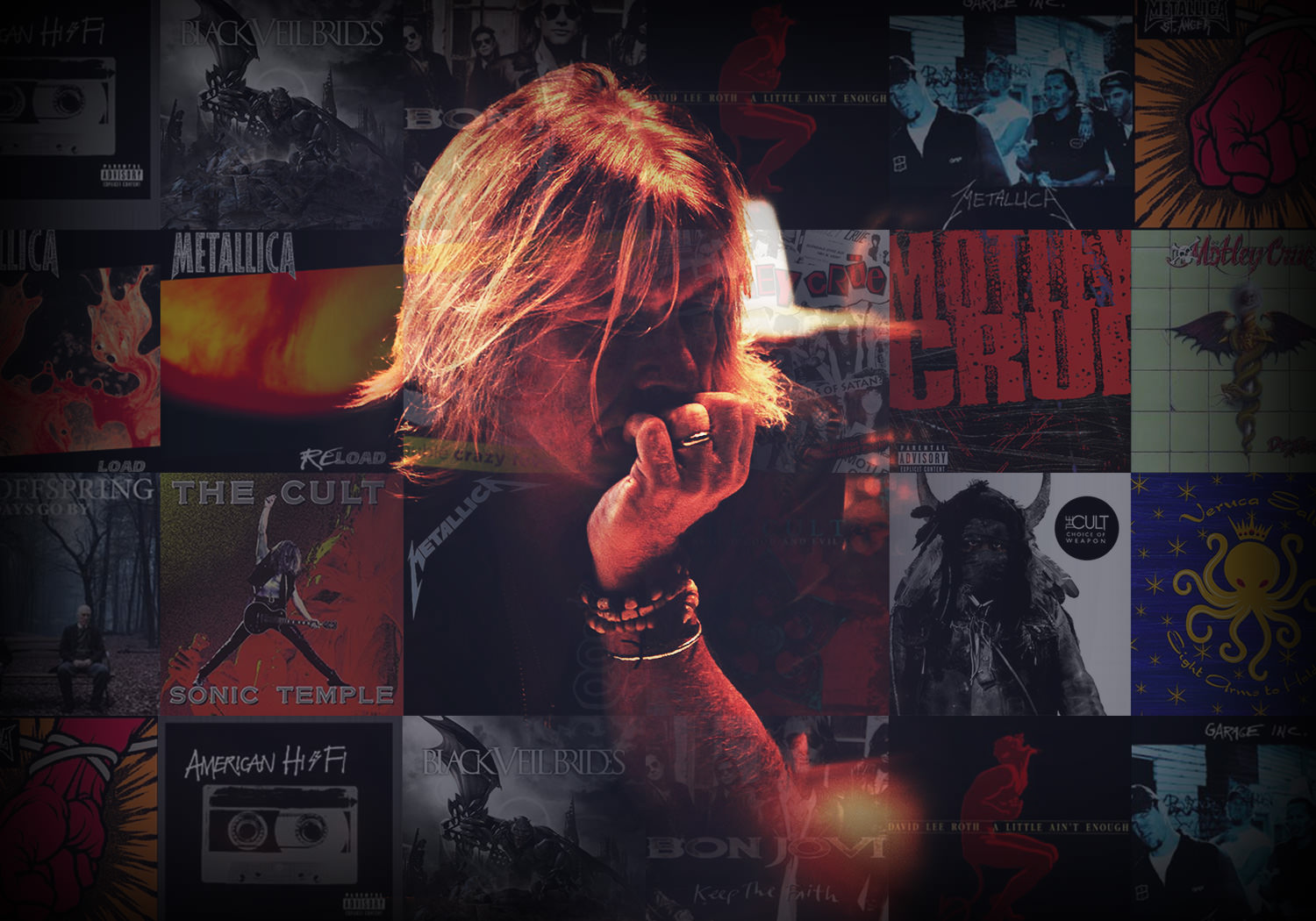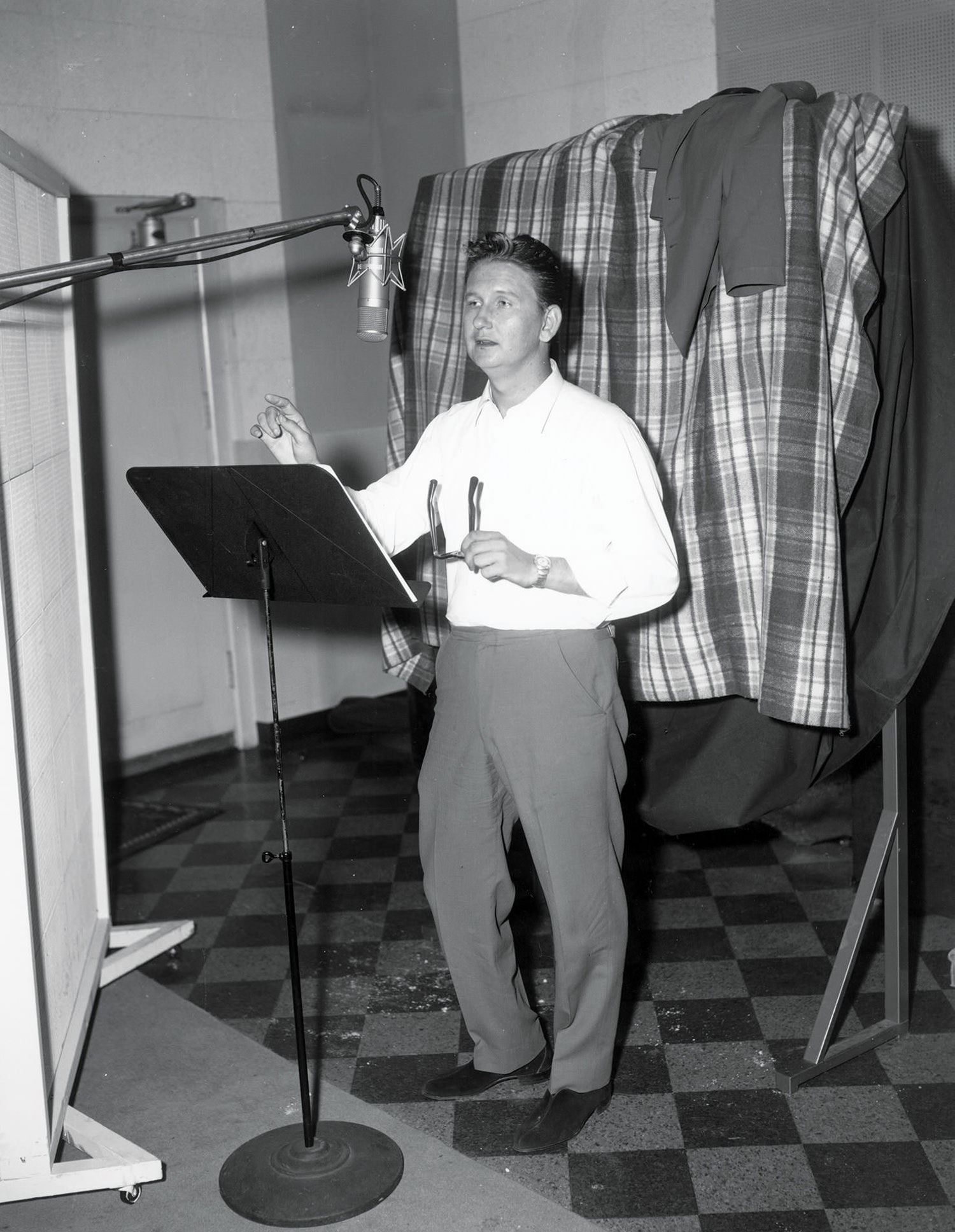Pat, how did you end up doing the Brazilian stuff?
P: I would say almost exclusively at first through Arto [Lindsay], who I had worked with on his own stuff. I guess the first thing I went to Brazil for was Marisa Monte's first studio record, her second record [Mais]. Arto did a great job of bringing a different thing to what was a pretty stagnant pop pool down there. He, and then consequently me, were beneficiaries of that, getting a lot of work through that.
D: Did he do a lot of that record up here, or vice versa? Were the rhythm tracks down there and then add guys up here?
P: It was almost exactly half and half. Actually Roger Moutenot did a bunch of the recording of the stuff that was done here, and I did the stuff that was done in Brazil. But there were full bands at each place. It was great. Down there we used some of her touring band and some famous guest friends — it was interesting. That was a pretty early taste of the Brazilian recording scene, which has gotten amazing since then. At the time they were sort of straddling the thing that I think this country went through and probably the UK went through in the '60s, where there is the old way of doing things and the people doing them who are still there. That was definitely fading out by when I got there, but still the specter of it was there. You booked the studio 9 to 5 or 10 to 6, but it was very corporate in a way that we didn't really deal with much after the '60s.
Yeah we really take for granted how loose the studio system is post-Beatles.
P: That pretty much is the turning point, at least in pop music.
There were some notes online for the live EP [Everything That Happens Will Happen on This Tour] for the Everything ... tour. Did you do the recording on that?
P: I did the mixing. They were travelling with a system where they could pretty much record every show.
D: Yeah we just had to get a Pro Tools rig in and a computer.
P: But they were using a [Digidesign] Icon and patching right into it. It just dumps it in.
The tracks sounded great.
P: They did. What they sent me sounded really good. There were the usual things with the live performance — certain things about where people are standing — but it sounded really cool.
Did you do any other Bush of Ghosts songs besides that one on tour?
D: There were two. We did "Moonlight in Glory" and "Help Me Somebody." "Help Me Somebody" we did I think pretty much every night, more or less, and "Moonlight in Glory" we did every so often.
P: That's a great version on the EP. It's a nice performance.
D: It was a great band.
Do you enjoy doing that — putting together an album and then finding some people to take it on the road?
D: Every so often. I am not somebody who likes to be on the road all the time. I was on the road for about a year with that, and I did it for a year because it was evident that after a few months that it was working really well and everybody was having a lot of fun. Everybody was getting along. "Now we may as well keep going. Everybody's having a good time." It's almost a challenge to figure out, "What kind of show do we make? What gets emphasized? What kind of material can we do with the musicians that are going to be on stage?"
Do you feel obligated to play certain songs when you go on the road?
D: Oh yeah. Not exactly certain songs, but obligated to do a few Talking Heads hits — maybe not always the same ones, but an obligation to do a few. For a while, as a lot of artists do — I think when I did Rei Momo with the Latin tour, I couldn't play those songs with that band. I learned the hard way that sometimes the audience is like, "Just give us a few. Just give us something. Give us a few of the songs we remember. We will go along with this, but just meet us halfway." I learned the hard way that you meet the audience halfway, and make a bridge for the new stuff that you are trying to introduce.
I think you mention at some point in Bicycle Diaries that you were talking to someone and realizing during the conversation that they are asking you questions as if you had not done anything since the Talking Heads disbanded.
D: I can understand that, but at the same time it's a little bit weird to say, "Actually I have done quite a few records. I haven't sold quite as many, but they are okay."
It's hard to tell when you are standing on the stage looking out there wondering, "What do they want?"
P: Well, you do have the advantage if you are standing on the stage, and there are people out there that came for something that you did. You've got that going for you. But doing the stuff you worked on with Brian [Eno] over the years was a good framework to do some of the Talking Heads stuff that you hadn't done in a while.
D: Yeah, I did think, "Well, here is a thread that I can use to link the new stuff with the old stuff." And I can show structurally more so in a live show that there are links between the new stuff and the older stuff in the way that they are musically put together that isn't as apparent on record, because the sound is so different.
Did Brian come to some of the shows?
D: Yeah, the ones in London.
Did he give you feedback?
D: No, he seemed to have a great time.
You have an office that runs your affairs and works with you on projects.
D: It's not just luck, but I am lucky that I can afford to have somebody like Frank [Hendler] who keeps on top of music stuff, also making sure that everything is archived. There is backup for everything. There are some artists who have their own studio, all their own tech guys, all their own crew and people — it's basically like they have Kampo in the back of their house. I think, "Oh my God. I don't want that. I want somewhere that I can go to and then leave."
It's a pretty large infrastructure to place around oneself.
D: Then you feel obliged to use it, book it, whatever all the time. I have my hands full with what I have.
www.davidbyrne.com




